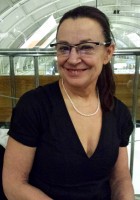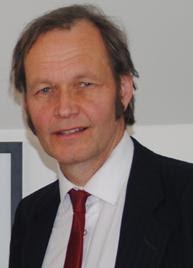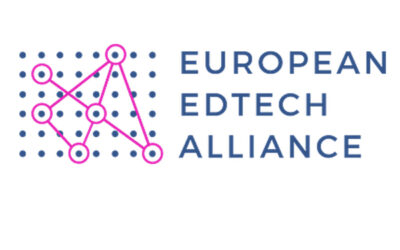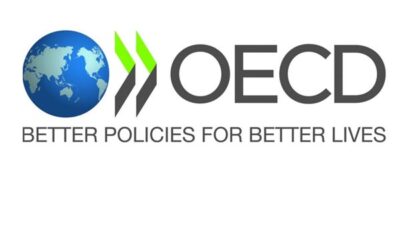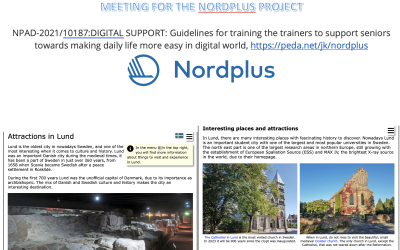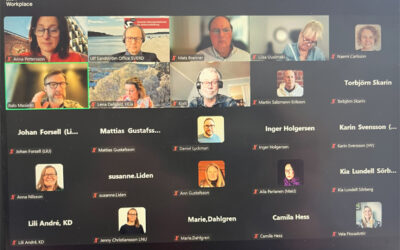As the Covid-19 pandemic spreads throughout the world, school leaders and educational policy makers struggle with school closures and at the same time, with a fair continuity of learning. This historical event demonstrates the need to orient our education systems towards more flexible education and learning at anytime and anywhere that the EU Commission has long advocated through the Opening Up Education initiative (2013) and to modernize education to meet students’ individual needs. The UN UNESCO Sustainability Goals on Education (SDG4) and their new initiative on Futures of education: Learning to become advocate this. With the Corona outbreak, the need for a crisis-resistant education system has also emerged.
Teachers around the world are encouraged because Covid-19 to switch to online and distance education. Most governments around the world have temporarily closed educational institutions and all buildings in an effort to prevent the spread of the Covid-19 pandemic. However, education must continue and as Prime Minister Stefan Löfven pointed out, it is not an extended summer holiday. However, education is and has never been based on premises and buildings, but is shaped and developed by teachers, researchers, students and students together. Teachers are the backbone of education systems and the key to achieving learning goals, regardless of context and situation. In the Covid-19 crisis, they are in the front line to ensure that learning continues.
The Swedish National Organization for Distance Education (SVERD) oversees, participates and follows the development of Covid-19 nationally and internationally and participates in the international campaigns #learningtogether #onlinetogether and the UNESCO initiative #LearningNeverStops. SVERD has launched on its website a website SVERD Corona #learningtogether which includes tips, recommendations and information on how to get started with the transition to distance education and to work and learn with digital tools at a time when physical meetings are limited (see also Facts box down below ).
UNESCO estimates that more than 850 million children and young people – about 80% of the global student population – have been forced to stay away from school and university premises because of the pandemic COVID 19. National closures are in force in about 110 countries and local closures in many Other. This means more than doubling the number of students who are prevented from attending physical education institutions, and a further increase is expected during this Covid 19 pandemic.
From day one to the next, teachers around the world thus handle virtual classrooms, communicate with their students via social media platforms and provide distance education to over 1.5 billion students affected by school closures due to the Covid 19 pandemic. For decades, however, for decades, advocates and actors in distance education have acted to modernize and utilize digital resources in the field as society becomes more and more digitized. However, the education sector has troublesome enough lagged behind. A major difference that can be seen in connection with Covid19 is that in connection with the virus outbreak, everyone has been forced to reschedule and the digitization of education has thus not been electable, as it was before. Previously, individual teachers have been able to choose or opt out of digitization. Now when it comes to everyone and rolls out on a broad front not only in Sweden but also the rest of the world, you can already see effects in the form of efficiency, quality improvement, creativity, incentives, strong leadership, infrastructure, and innovation. Extensive initiatives have been established both locally, regionally, nationally and internationally. An extensive sharing culture has also grown strongly.
Lessons learned
What we considered normal a few weeks ago no longer exists. Nothing is back to normal after the Covid19 pandemic. We have come to realize that the world and conditions can and have changed incredibly quickly, without being able to prevent it directly. Most people have changed in a short time and have grown accustomed to using digital work and meeting methods and distance bridging technology and the lessons learned will remain a long time after the pandemic is over for this time. So forget about any reset to what seemed normal a month ago. Instead, think what can we learn from the consequences of this terrible global pandemic. So-called recovery cannot be the meaning and certainly not desirable. So when education and work move home, what impact has it had and will have on students, academics, administrators and education managers? The future calls.
One lesson is that schools that have already invested in good digital infrastructure, trained on new digital work methods and implemented individualized teaching quickly got their education started when students could no longer go to school. The schools, however, which did not have a digital strategy were referred to keep the education up to date through correspondence via letters and to solve submission tasks on paper.
When teaching is given entirely online, both teachers and students need to adapt their meetings and working methods. Since most both students and teachers are accustomed to so-called campus teaching, it can initially be tough to start regulating their own learning and the new study and work habits. It is important here to create routines, in the form of time and place for work and study. It has already proved important not only to reproduce exactly what has been done in the classroom with online studies. In addition, online studies have a different perspective, namely to always start from the student / student wherever they are. There are many who testify to the importance of thinking differently than when you are not physically met. It has also been found that it is important to consider, promote and facilitate the social and emotional aspects of learning and that students discuss with each other and learn from and through each other, so-called collaborative learning and peer-learning or peer-learning. Further aspects of not meeting each other physically are maintaining motivation, pleasure and fun with learning.
Teachers in both school and university have already used digital tools to a lesser or greater extent, but often as a complement to their teaching, and there has usually not been such a great need to spend more time learning about online teaching. There is usually also no incentive or infrastructure for this. The digital level of competence among teachers and educational organizations has already increased to a very high degree these weeks. Likewise, innovation and incredibly creative ideas have taken shape, both educational and digital solutions.
As the organization changes, so can you succeed with online education:
Think holistic, organization, leadership, infrastructure, technology, digital resources, preferably open learning resources (OER), syllabus, course materials, pedagogy, technology, evaluations, examinations, all staff and all students and students (Dont leave anyone behind).
- Position the situation, collaboration, trust, cooperation and solidarity
- Research shows that success factors from a student perspective to succeed in their studies and take increased responsibility in the form of self-determined learning are: Attendance (teacher and fellow students, trust, interaction, flexibility in time, space, media etc., accessibility motivation, individualized learning, humor and KISS (keep it simple and safe).
Think about your work environment even if the workplace is now at homeKeep your regular routines
Write a “To Do List” and plan the day
Avoid anything that distracts you (eg your mobile phone)
Plan your breaks
Hold video meetings with your fellow students and colleagues
End the day in time
Future scenarios and conclusions
The new normal after the Covid19 pandemic will be about change, reorientation and sustainability. As both studies and work have changed form in just one month, digitalisation and digital competence in both individuals and organizations have changed and also increased. It has also become evident that the digital revolution is about people and their habits, behaviors and attitudes in connection with how to use the new technology.
- Blended learning will increase dramatically
- Online education will be a strategic priority at every institution
- New and innovative partnerships
A sustainable society requires access to digital platforms and the opportunity to quickly adapt to new ways of communicating. Hereby we can prepare for the UN UNESCO initiative Futures of education – Learning to become, which goes beyond sustainability goals and aims for education in 2050.
FACTS
Svenska riksorganisationen för distansutbildning (SVERD) The Swedish Association for Distance Education (SADE) is a non-profit professional organization in Sweden for open, flexible online and distance education, including technology-mediated learning. SADE works for all people to have the opportunity to access information and knowledge through various physical and virtual paths.
SADE’s members come from the entire education sector, from K-12 to higher education, and public education, business and the private sector are also represented. SADE was founded in 1984 with the goal of expanding knowledge and participating in the development of open, online and flexible distance education, including technology mediated learning. SADE was founded in 1984 by innovators who saw the need for a regular exchange between actors in distance education in Sweden.
SADE has launched on its website a website SVERD Corona #learningtogether which provides lots of tips, recommendations and information on how to get started with the transition to distance education and to work and learn with digital tools at a time when physical meetings are limited.
For SADE The Swedish Association for Distance Education
Ulf Sandström, President
Ebba Ossiannilsson, Prof. Dr. V President
